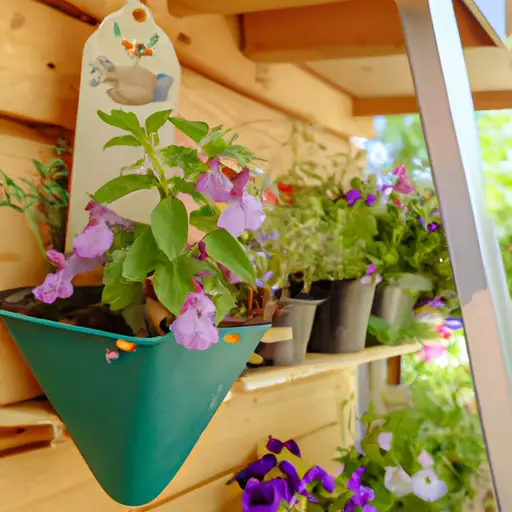Container gardening has become a popular trend in recent years, and for good reason. With concerns about climate change and the desire to engage in sustainable practices, people are realizing the importance of cultivating a lifestyle that is harmonious with nature. Container gardening not only allows individuals to grow their own fresh produce but also contributes to environmental preservation.
One of the primary benefits of container gardening is its versatility. It can be adopted by people who lack ample outdoor space, such as apartment dwellers or those living in densely populated urban areas. By using containers, gardening enthusiasts can transform even the smallest balconies or windowsills into thriving green spaces. Moreover, containers can be easily moved around, allowing plants to receive optimal sunlight throughout the day.
Sustainable living is all about minimizing waste and utilizing resources efficiently. Container gardening exemplifies this ideology by preventing unnecessary water usage and soil erosion. The confined space in containers helps retain moisture, reducing the need for frequent watering. Additionally, using organic compost or vermicompost not only enriches the soil but also reduces the reliance on synthetic fertilizers that could harm the environment.
Another advantage of container gardening is its ability to promote biodiversity within urban environments. Cities often lack green spaces and are dominated by concrete structures. By growing plants in containers, individuals can contribute positively to local ecosystems by attracting pollinators like bees and butterflies back into urban landscapes.
Furthermore, container gardening encourages people to support local food systems and reduce their ecological footprint. By growing their own fruits and vegetables, individuals have direct control over what they consume and can eliminate the need for buying produce wrapped in plastic or transported over long distances. This not only reduces packaging waste but also promotes healthier eating habits and fosters a sense of self-sufficiency.
The accessibility of container gardening makes it an ideal activity for families looking to teach children about sustainability and self-sustainability. Kids who participate in container gardening learn valuable lessons about where food comes from while developing a deep appreciation for nature. They experience the joy of nurturing a plant from seed to harvest, which can have long-lasting positive impacts on their relationship with the environment.
In conclusion, container gardening represents a powerful tool for fostering a sustainable lifestyle. Not only does it allow individuals to grow fresh produce in limited spaces, but it also promotes resource efficiency, biodiversity, and self-sufficiency. By adopting this practice, we can collectively contribute to environmental preservation while enjoying the numerous physical and mental health benefits that come with reconnecting with nature. So let’s embrace container gardening as a means to cultivate a greener future for ourselves and our planet.













